Cat pee is not a pleasant odor, even when it’s safely contained in a litter box. However, when a cat starts urinating in inappropriate locations, the situation escalates. Inappropriate urination is a common reason that cats are surrendered to animal shelters, so it’s vital to figure out what’s going on fast. Here are seven possible reasons why your cat could be peeing outside the litter box and what you can do to correct the problem.
If your cat is peeing outside of their litter box or they are frequently stepping in and out of the box, straining, crying, passing very little or no urine, or having blood in urine, they need to see the vet urgently, as urinary blockage is possible. This condition can be life-threatening, leading to a bladder rupture or kidney failure.

The 7 Possible Reasons Your Cat Is Peeing Outside the Litter Box
1. Previous Urine Smells
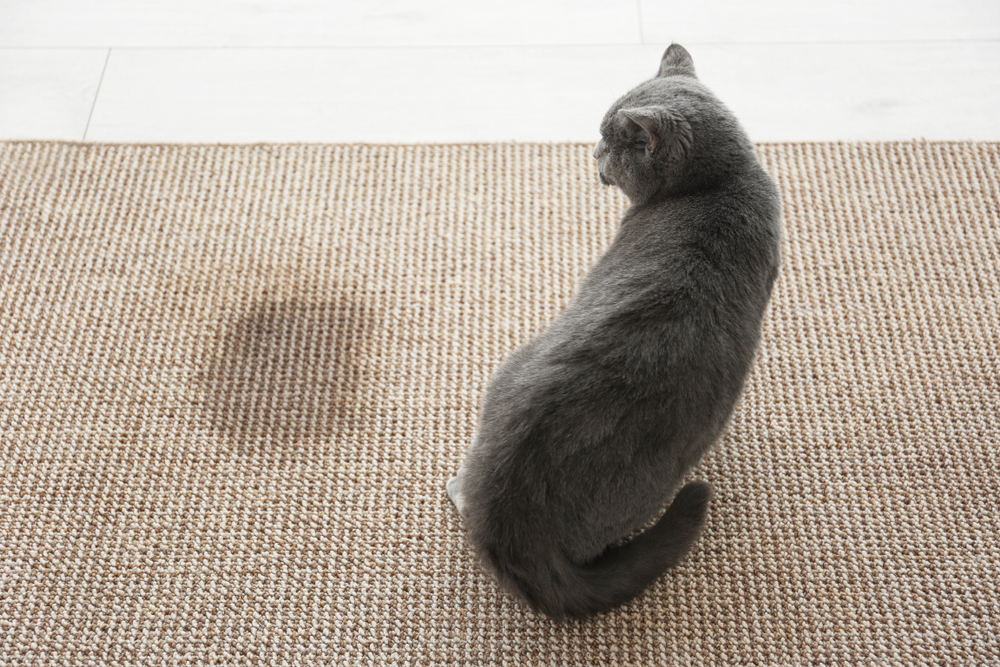
| Problem type | Behavioral |
| Requires medical treatment | No |
Cats have an instinct to urinate in the same place they have previously. If they are peeing outside the box, it could be because they smell old urine left over from a previous accident. It doesn’t have to be their accident, either. If you move into a new home and find that your cat is suddenly peeing outside the box, it could be because they smell odors left by a previous feline inhabitant.
Cats have much more sensitive noses than humans, so just because you can’t smell any urine in the house doesn’t mean it isn’t there.
- Placing a food bowl, toys, or a small bed in the area if there is no room for a litter box, while still keeping the box nearby, may also divert the cat to use the litter box instead of the floor, as they will not toilet near their feeding, playing, and resting places. Keep track of litter box locations, and move them around until you find the perfect spot that your cat chooses to use.
- Clean up any fresh accidents as quickly as possible. Use a product designed to break down and eliminate urine odors. For old stains, you may need to repeat the process multiple times or try placing the litter box in the area where the cat is choosing to go. They may decide to use the box instead.
Our Favorite Enzyme Cleaner The Hepper Advanced Bio-Enzyme Pet Stain & Odor Eliminator Spray is our favorite enzyme cleaner out there. It permanently removes even the very worst kitty stains and smells, leaving your home fresh and clean! Click here to learn more about this amazing product and get yourself a bottle.
At Catster, we’ve admired Hepper for many years, and decided to take a controlling ownership interest so that we could benefit from the outstanding products of this cool cat company!
2. Medical Issues
| Problem type | Medical |
| Requires medical treatment | Yes, urgently |
Many different medical issues can cause your cat to pee outside the litter box. Frequently, peeing outside the box is a sign of urinary problems, including inflammation, infection, bladder crystals and stones, urethral spasms, and more, all known as feline lower urinary tract disease or FLUTD. All of these urinary issues are very painful for your cat and may lead to a urinary blockage, which is fatal if left untreated.
- Urinating outside of the litter box
- Straining to urinate
- In and out of litter box
- Meowing in distress
- Passing very little or no urine
- Blood in urine
- Refusing to eat
- Lethargy
- Vomiting
- Distended painful abdomen
- Licking genital area frequently
Cats suffering from arthritis or another painful condition may find that they can’t climb into the litter box to pee like they used to. Any disease that causes your cat to drink and urinate excessively may also result in accidents because the kitty can’t get to the box in time. Examples of these conditions include diabetes, kidney disease, and hyperthyroidism.
- Make an appointment with your veterinarian urgently. Ruling out any medical issues first is essential to solving the problem of peeing outside the litter box. Follow all treatment plans carefully if your cat is diagnosed with a medical problem.
- If your cat is showing signs of FLUTD or a urinary blockage, they need to see the vet as an emergency, no matter the time of day or night.
If you need to speak with a vet but can't get to one, head over to PangoVet. It's an online service where you can talk to a vet online and get the advice you need for your pet — all at an affordable price!

3. The Box Is Dirty
| Problem type | Behavioral |
| Requires medical treatment | No |
Many cats choose to go outside the litter box because they feel it is too dirty. Some cats aren’t as particular about using only a clean litter box, and it can get easy to slack off on cleaning it. Generally, you should aim to scoop the box at least once per day, ideally twice, especially if you have a picky cat. Another option is to invest in a self-cleaning litter box, but make sure it doesn’t make the problem worse by scaring your cat and making them avoid the box even more.
- Scoop the litter box thoroughly once per day. Change out the litter frequently and make sure you keep enough litter in the box as well.
4. Dislikes the Litter
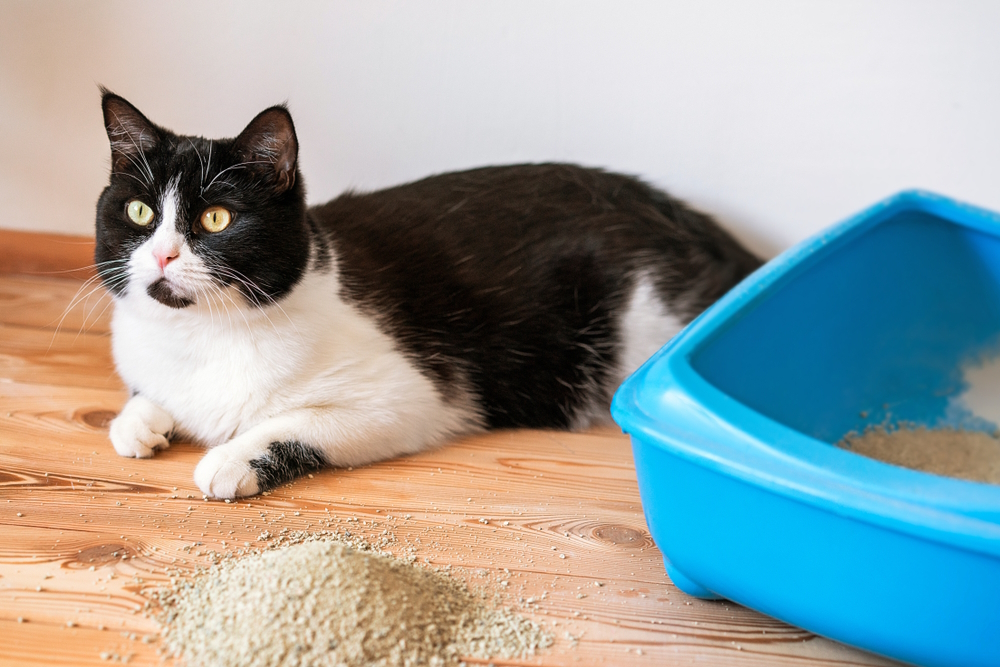
| Problem type | Behavioral |
| Requires medical treatment | No |
Cats can also avoid the litter box because they don’t like the texture or smell of the litter itself. Cat litter is available in more types than ever as manufacturers try to balance concerns over dust and allergens with effective odor control. However, the only product reviewer that matters is the cat in this case.
Typically, an unscented, clumping litter is well-tolerated by most cats. Once you find a brand your cat likes, be consistent and stick with it. Sudden litter changes can also resurrect the problem of peeing outside the litter box.
- Experiment to find a litter that your cat tolerates and be consistent about using it.
Even the best cat litter can quickly start smelling bad. To avoid the expense and inconvenience of constantly replacing your litter, you can try a great litter additive like Hepper's Advanced Bio-Enzyme Cat Litter Deodorizer, a natural product that uses bio-enzymes to neutralize odors.
- Bio Enzymatic Cat Litter Freshener - Smart formulation uses natural ingredients eliminating cat...
- Save Money - Stuff for cats isn’t the cheapest. With this litter box odor eliminator, you’ll...
- Every Litter, Every Surface - Are you afraid this additive won’t work on your litter? Fear not!...
This deodorizer works on all types of litter and won't disrupt your cat's litter box habits.
At Catster, we’ve admired Hepper for many years and decided to take a controlling ownership interest so that we could benefit from the outstanding designs of this cool cat company!
5. Dislikes the Litter Box
| Problem type | Behavioral |
| Requires medical treatment | No |
Cats may urinate outside the litter box because they object to either the location of the box itself. The litter box needs to be large enough for the cat to feel comfortable using it. Some cats don’t like covered boxes, while others don’t mind. The noise and motion of automatic litter boxes may frighten nervous kitties. Cats may also avoid litter boxes placed in high-traffic areas or near noisy appliances such as washing machines.
Others may shun box locations that make them feel trapped when peeing based on their survival instincts.
- Place the litter box in a quiet location with enough escape routes that your cat feels safe. If you have an open litter box, try switching to a closed one. Look for a self-cleaning box that delays the scooping process until your cat is away from the location to avoid any fear issues.
6. Territorial Squabbles
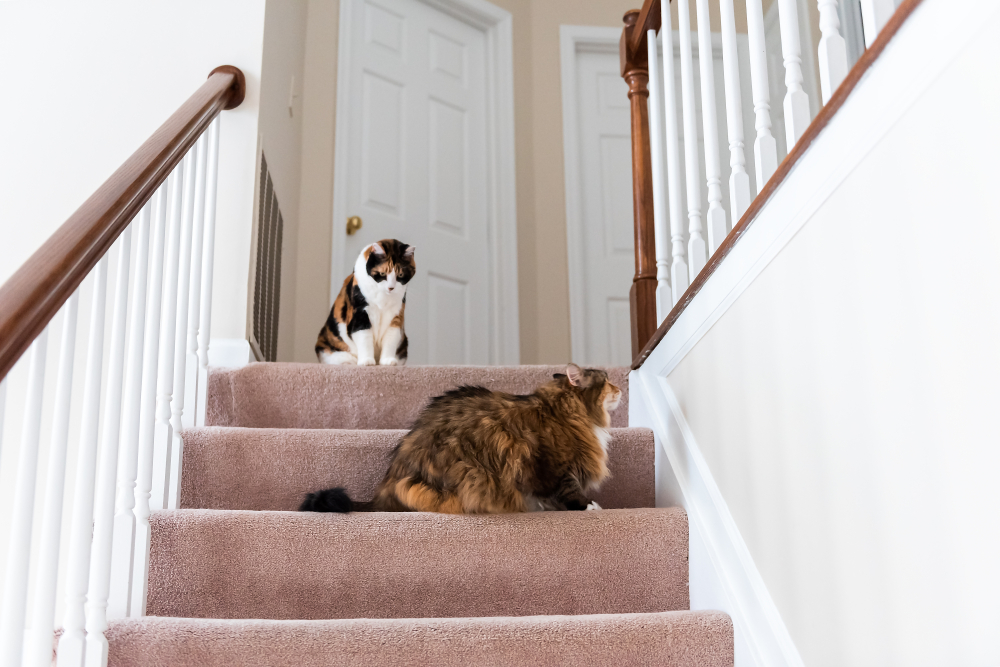
| Problem type | Behavioral |
| Requires medical treatment | Sometimes |
A more complicated reason your cat pees outside the litter box is that they are having territorial clashes with another kitty in the house. Cats are territorial animals by nature, with an instinct to claim property and possessions for their own. If you’ve recently added a new cat to the house, either animal could be peeing outside the box as a signal to the other to stay away.
If one cat has already “claimed” the litter boxes, they may bully the other by leaving their scent and marking, preventing proper use of the box.
- Make sure you have enough litter boxes for each cat in the house plus one extra. If possible, place the boxes in different locations, including keeping one on each level of the house, and use cat pheromone products to provide a calming environment. If necessary, see your veterinarian for help. They may prescribe anxiety medications or suggest other solutions.
7. Stress
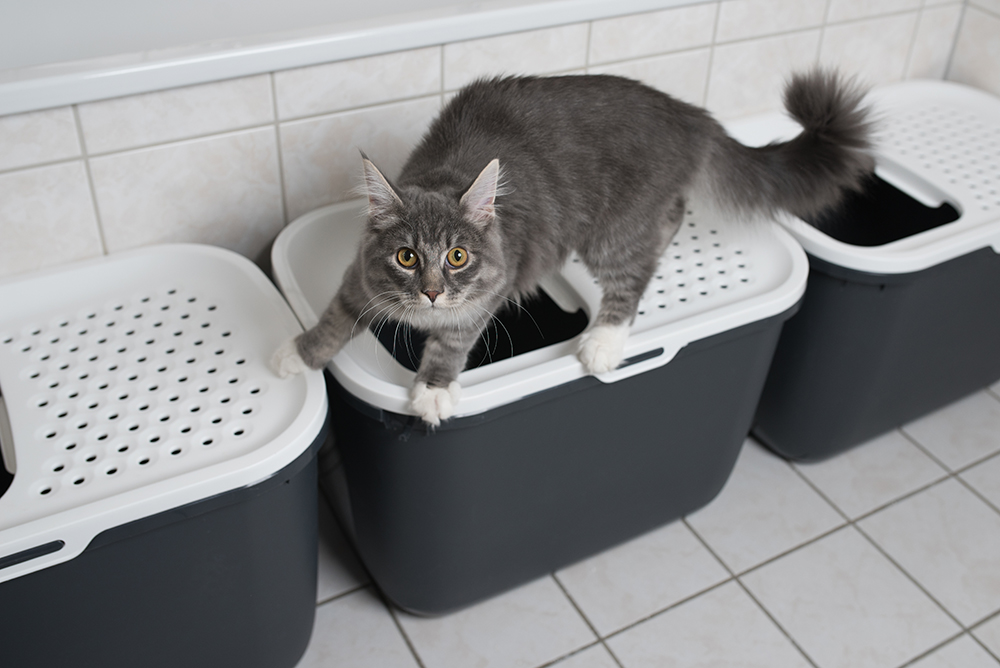
| Problem type | Behavioral |
| Requires medical treatment | Sometimes |
A frequent and frustrating cause of peeing outside the litter box is stress. Cats can become stressed for multiple reasons, leading to inappropriate urination. Common stressors include a new person (roommate, baby, significant other) coming to live in the house or the addition of a new pet. Cats may also become stressed by guests, home repairs, stray cats hanging around outside, or loud construction taking place nearby.
Figuring out what is bothering a cat can be complicated and sometimes requires a veterinarian’s help to solve.
- There’s usually no one-size-fits-all solution for this due to the many possible causes of stress. If the stress is temporary, such as guests or home improvement, try to provide the cat a safe space to hide away, with their food, bed, and litter box nearby. Introduce new pets slowly. Make sure you continue to give your cat plenty of attention even with a new baby or another person entering the picture. See your vet for assistance with behavioral modification or medications if nothing else seems to be working.

Is Peeing Outside the Box an Emergency Medical Situation?
Sometimes, your cat peeing outside the litter box is a genuine emergency medical situation, particularly if combined with signs of FLUTD we discussed. As we learned from our list, peeing outside the box can also be a sign of stress or a behavioral concern. Some behavioral problems require medical intervention but typically not on an emergency basis.
However, some medical causes of peeing outside the box can result in an emergency if they are not treated promptly. Male cats, especially young ones, can become blocked and unable to urinate at all as a result of a urinary tract condition or even from stress. Not peeing at all is a life-threatening situation that requires immediate veterinary care.
Bladder stones can become lodged in the urinary tract, and they can affect male and female cats. Untreated diabetes can lead to life-threatening chemical imbalances in the cat’s body, and kidney disease can progress to the point that the cat’s kidneys don’t work at all, leading to a build-up of toxins in the body.

Conclusion
Dealing with a cat urinating outside the litter box can be messy, smelly, and frustrating for us as cat parents, but it is often painful and distressing for your cat as well. Never punish your cat for this behavior, as they are doing it because of an illness, pain, or stress, trying to tell you something is wrong. As we discussed, peeing outside the box can occur from circumstances out of your cat’s control, and punishing them is confusing and unfair. It will also likely damage the bond between you and your cat.
Before your frustrations reach a boiling point, don’t hesitate to reach out to your veterinarian or a veterinary behaviorist for help. If your cat is showing signs of FLUTD or is unable to pass urine, they need to see the emergency vet immediately.
You Might Also Be Interested In:
- Cat Peeing Over the Edge of the Litter Box? Reasons & Solutions
- Cats Peeing in Sink or Bath Tub? 7 Ways to Stop it!
Featured Image Credit: jamesjoong, Shutterstock




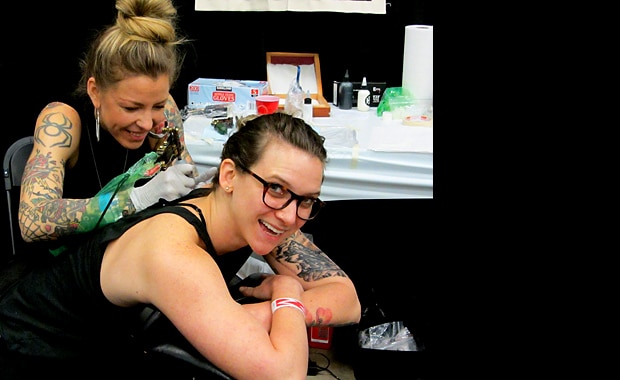
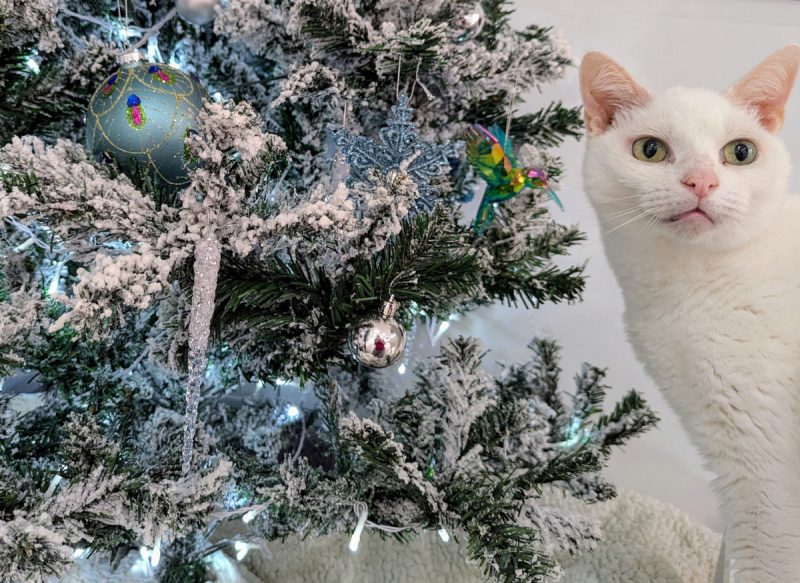
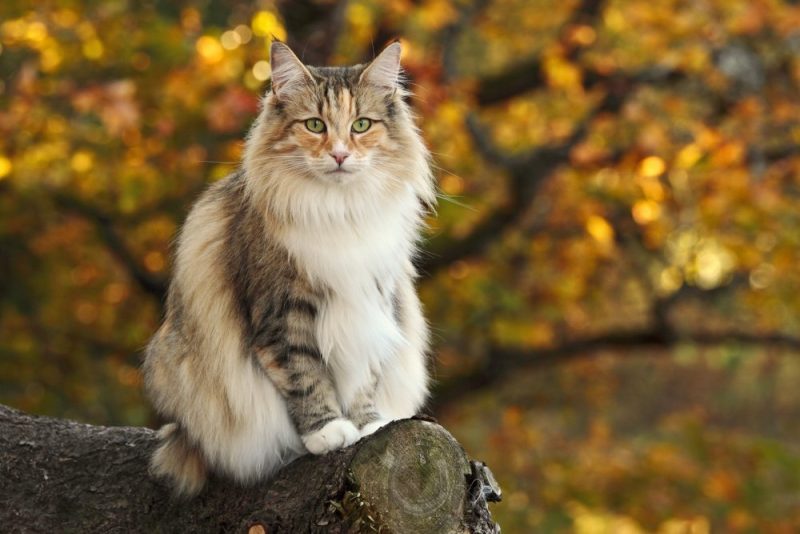

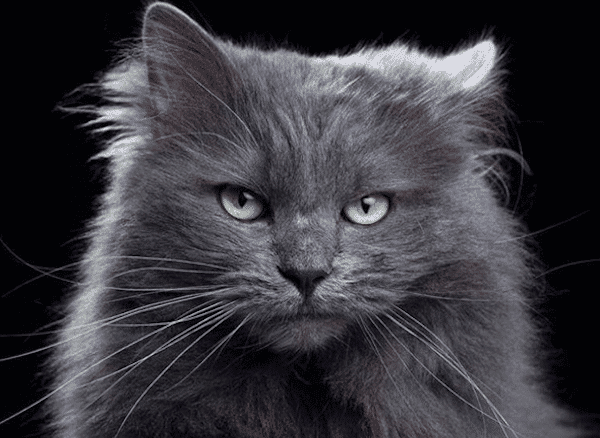
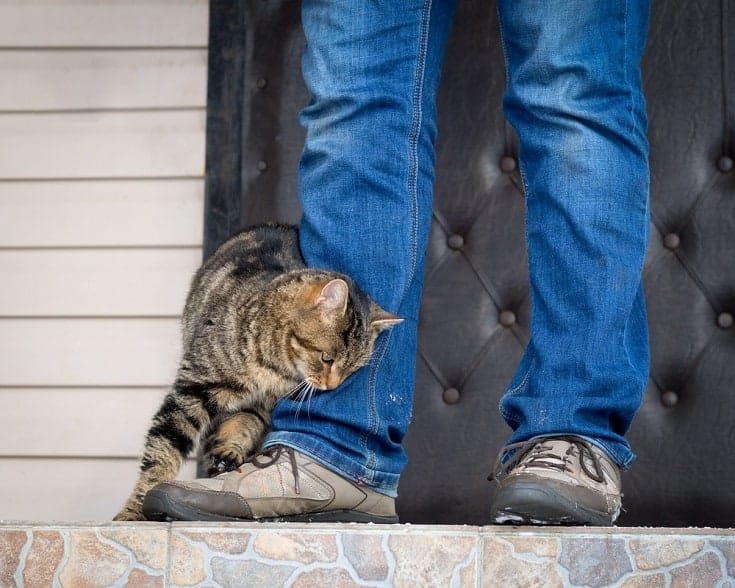

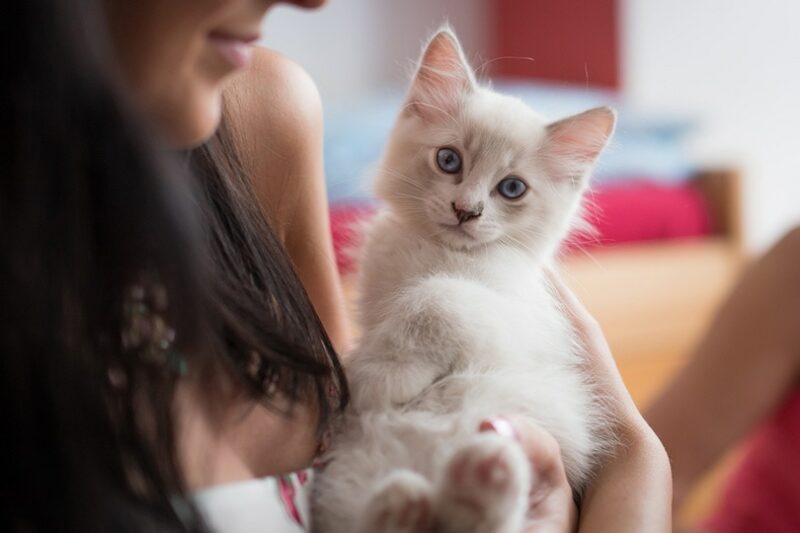


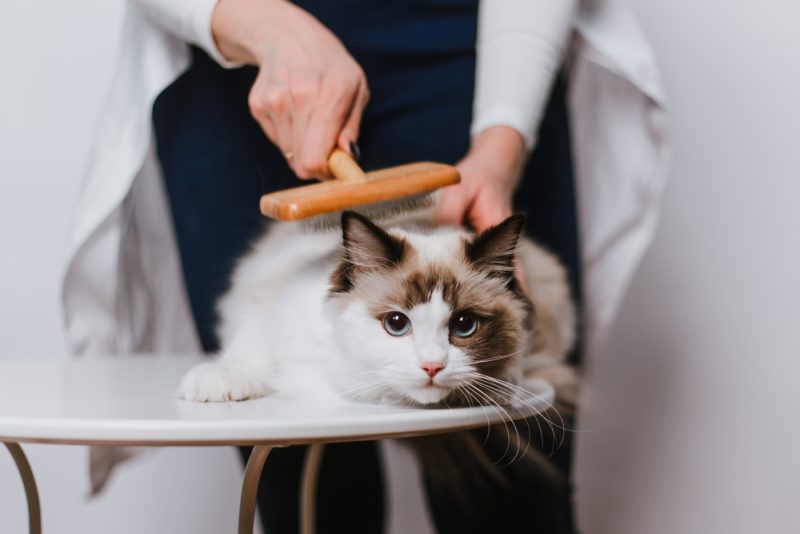

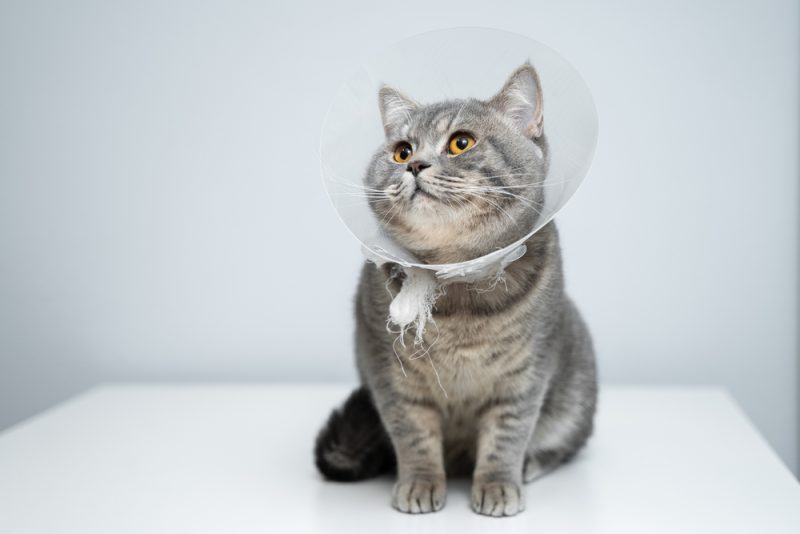
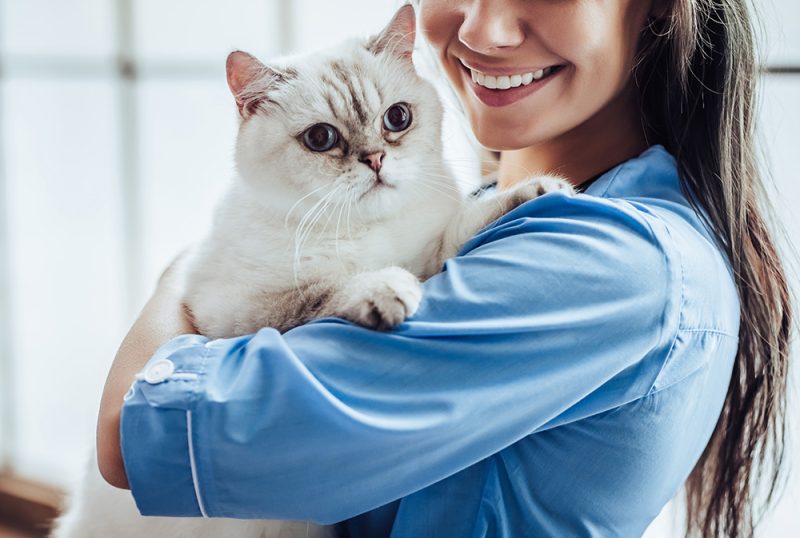
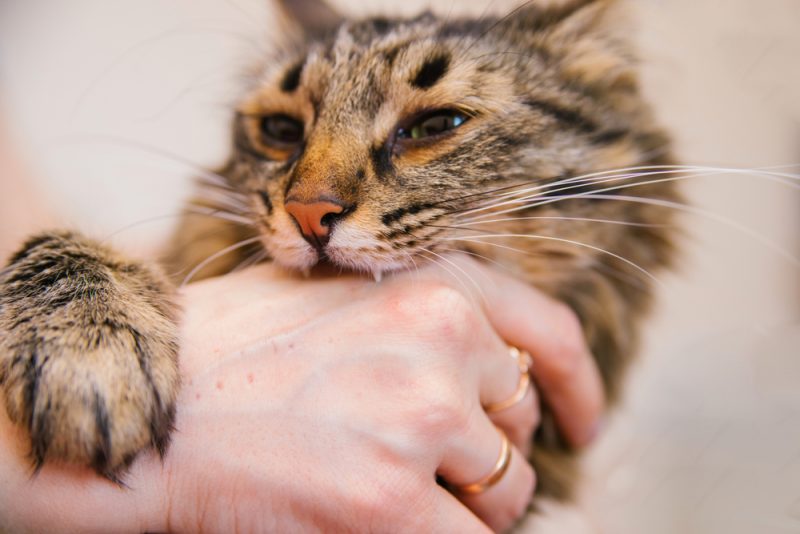



2 Responses
could changing his deit from wet to dry special food help
Dear Patricia,
thank you for your question. As mentioned in the post, the most important thing is to figure out the reason your cat is behaving this way. This is mostly due to the litter box issues, whether it is cleanliness, type of cat litter, or the litter box itself.
Other cause can be stress, however it is doubtful that your cat could get into stress due to their diet, unless you switched the type of their food abruptly.
The last option is medical causes, therefore if nothing of mentioned above helps, we suggest you set an appointment with one of our veterinarians at www.PangoVet.com. They will be happy to consult the situation with you and help to find a solution for your cat.